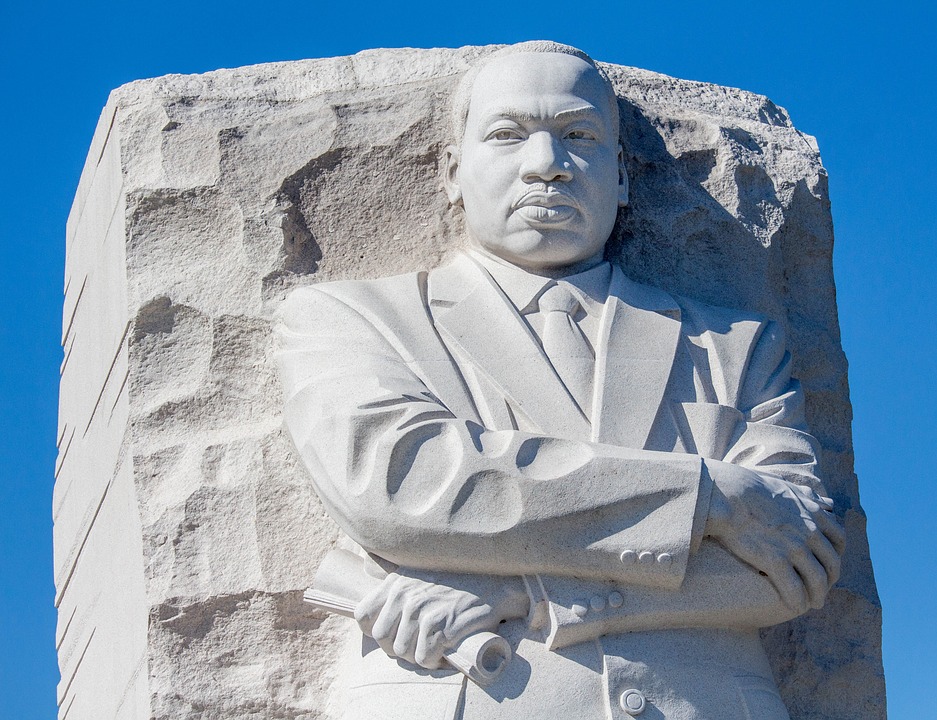
WRF Member Todd Mangum Asks, "Martin Luther King - How Far Have We Actually Come?"
Let’s get this out right away: we still have a long way to go. We have longer to go than I thought we did, frankly, after electing our first African American president to the highest political office in the land.
The events of Ferguson, MO, New York City, Cleveland, OH, and Miami Gardens, FL (and these are just the tip of the iceberg if the testimony of vast numbers of African American men and women across the country is any indication) suggest that race-based inequities and race-rooted “misfortunes” are still very much with us.
Not to mention: does the kind of extraordinary resistance Obama has gotten from his first day in office have anything to do with his race? Many a Republican politician and party operatives insist that presidential politics is inherently hardball, a “contact sport” as Bill Clinton once famously put it. But still. . . some of us can’t help but wonder: is race a factor in at least exacerbating some of the animosities the president has endured?
Have we progressed at all?
On the other hand, let us not overly despair. We have not gotten nowhere; that is we have gotten somewhere, and in some ways actually have made tremendous gains.
“Selma,” Alabama, rather than being a place where state and national troops clash over whether unarmed African American protestors should be protected or forcefully disbursed and Negro ministers, leaders, and protestors, young and old, men and women, are beaten senseless for nothing more than exercising their free speech and pleading for rights that should never have been denied them in the first place, is today a blockbuster movie commemorating and celebrating the lives and courage of those who took up the cause for civil rights in the early 1960’s.
I was touched this past week in particular by the testimony of one survivor, now over 100 years old, who had been left for dead on “Bloody Sunday” (March 7, 1965) at the foot of the Edmund Pettus bridge in Selma Alabama. “I just turned around to see the folk and wondered why they were beating them so. I just couldn’t understand,” she said. Today, the entire civilized world, white and black, shares her puzzlement and shock; and white people view the scenes and hear the stories with shame rather than gladness.
This actually represents significant progress.
Likewise, while it is true that a disproportionate number of unarmed black men are suffering physical violence and sometimes dying at the hands of law enforcement, today this is a point of national attention, grief, and investigation – not just a “dog bites man” story of no major concern or consequence. No one – least of all law enforcement officers themselves – is shrugging this off anymore as just business as usual.
This, too, represents significant progress.
What is the significance?
I could go on. But, of course, the fact that these are some of the points of “significant progress” (and not anything like full, matter-of-fact equality in which brown skin represents no more significant a challenge in American societal life than brown hair) represents a plank of disappointment as much as reassurance.
This leads me to contemplate the significance of the one we commemorate this day: the Rev. Martin Luther King – i.e., a Christian minister.
The gains secured through his life’s work – and death – are gains that ultimately are secured only supernaturally. “We shall overcome” (first verse of the song) is an empty platitude without the second verse: “The Lord will see us through.”
Yes, the mission of God is such that one day “every valley be exalted, and every mountain and hill will be made low, the crooked made straight and the rough places made plain. Yes, the glory of the LORD will be revealed, and all flesh will see it together; for the mouth of the LORD has spoken” (Isaiah 40:4-5, with due credit also to Handel’s Messiah that has engrained these words in our minds forever).
While that process of leveling and straightening has indeed begun, and while we are ourselves called to be part of it (and straightened and leveled ourselves by it, too), we should make no mistake: it is a long process, and one guided and accomplished ultimately by the hand of God Himself.
Let us take up and forward this mission this MLK Day 2015 with hope, and with realism; with realism and with hope; with prayer along with action, and with action along with prayer. Amen.
About the Author
Dr. R. Todd Mangum
Todd Mangum is the Academic Dean, Director of the ThM, and Professor of Theology at Biblical. He is ordained by the Southern Baptist Convention. Todd is the author of The Dispensational-Covenantal Rift, and co-author (with Dr. Paul Pettit of the Howard Hendricks Leadership Center in Dallas, TX) of the just-released book, Blessed are the Balanced: Following Jesus into the Academy (Kregel), and of several articles seeking to bridge divides among Bible-believing Christians. He is married to Linda and they have three sons.
